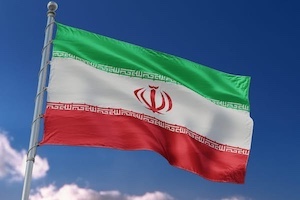Nuclear Talks Collapse; UN Reimposes Economic Sanctions on Iran

Reuters reports that the United Nations (UN) reimposed sanctions on Iran on the 27th after last-ditch negotiations between Iran and the UK, France, and Germany failed to resolve the deadlock over Tehran’s nuclear program.
After months of stalled talks, negotiations between Iran and major world powers have officially collapsed. The UN Security Council held an emergency meeting in New York and unanimously passed a resolution to reimpose partial economic sanctions on Iran effective immediately, in response to Tehran’s continued expansion of its nuclear program. The move has heightened global concerns over Middle East stability and caused renewed turbulence in energy markets.
According to the Security Council's statement, Iran has gradually exceeded the uranium enrichment purity and storage limits set by the 2015 Joint Comprehensive Plan of Action (JCPOA) over the past year and has refused full inspection requests from the International Atomic Energy Agency (IAEA). Despite multiple mediation efforts by the EU, including phased de-escalation proposals, Tehran has insisted its nuclear program is for “peaceful purposes” and refused to make further concessions. One negotiator stated, “We will not accept any conditions that compromise Iran’s sovereignty.”
The resolution was backed by the five permanent members of the Security Council and a majority of non-permanent members. Sanctions include restrictions on Iran’s oil exports, the freezing of certain overseas financial assets, and bans on the import of military and high-tech equipment. The U.S. State Department stated afterward that Washington remains open to diplomacy if Iran returns to the negotiating table, but warned that if Tehran continues to advance its nuclear program, additional unilateral sanctions could follow.
In response, Iran’s Foreign Ministry issued a statement condemning the Security Council’s decision as “unfair and politically motivated,” stressing that Iran will not abandon nuclear development due to external pressure. The statement added that Iran is prepared to face economic blockades and will strengthen trade and economic cooperation with friendly nations such as Russia and China to counter Western sanctions.
International analysts believe the collapse of the talks will further escalate tensions in the Middle East. As one of the world’s key oil exporters, Iran’s sanctions could lead to reduced crude supply, and global oil prices surged immediately after the resolution was announced. Several European countries expressed concern, warning that uncertainty in energy markets could intensify inflationary pressures and hamper global economic recovery.
Meanwhile, neighboring Israel voiced support for the reimposed sanctions and again warned that if Iran continues to develop high-purity enriched uranium, it may be forced to take “necessary actions.” Many fear that if the situation spirals out of control, it could trigger a regional military conflict.
Although the UN resolution has been finalized, diplomatic experts emphasize that there is still room for maneuver. If Iran is willing to return to the negotiating table and demonstrate transparency in its nuclear program, the international community may still find a path to avoid full-scale confrontation. However, in the short term, mutual trust between Iran and the West has nearly collapsed, and the future trajectory of the situation remains a key concern for the global community.
- 79 reads
Human Rights
Fostering a More Humane World: The 28th Eurasian Economic Summi

Conscience, Hope, and Action: Keys to Global Peace and Sustainability

Ringing FOWPAL’s Peace Bell for the World:Nobel Peace Prize Laureates’ Visions and Actions

Protecting the World’s Cultural Diversity for a Sustainable Future

Puppet Show I International Friendship Day 2020

